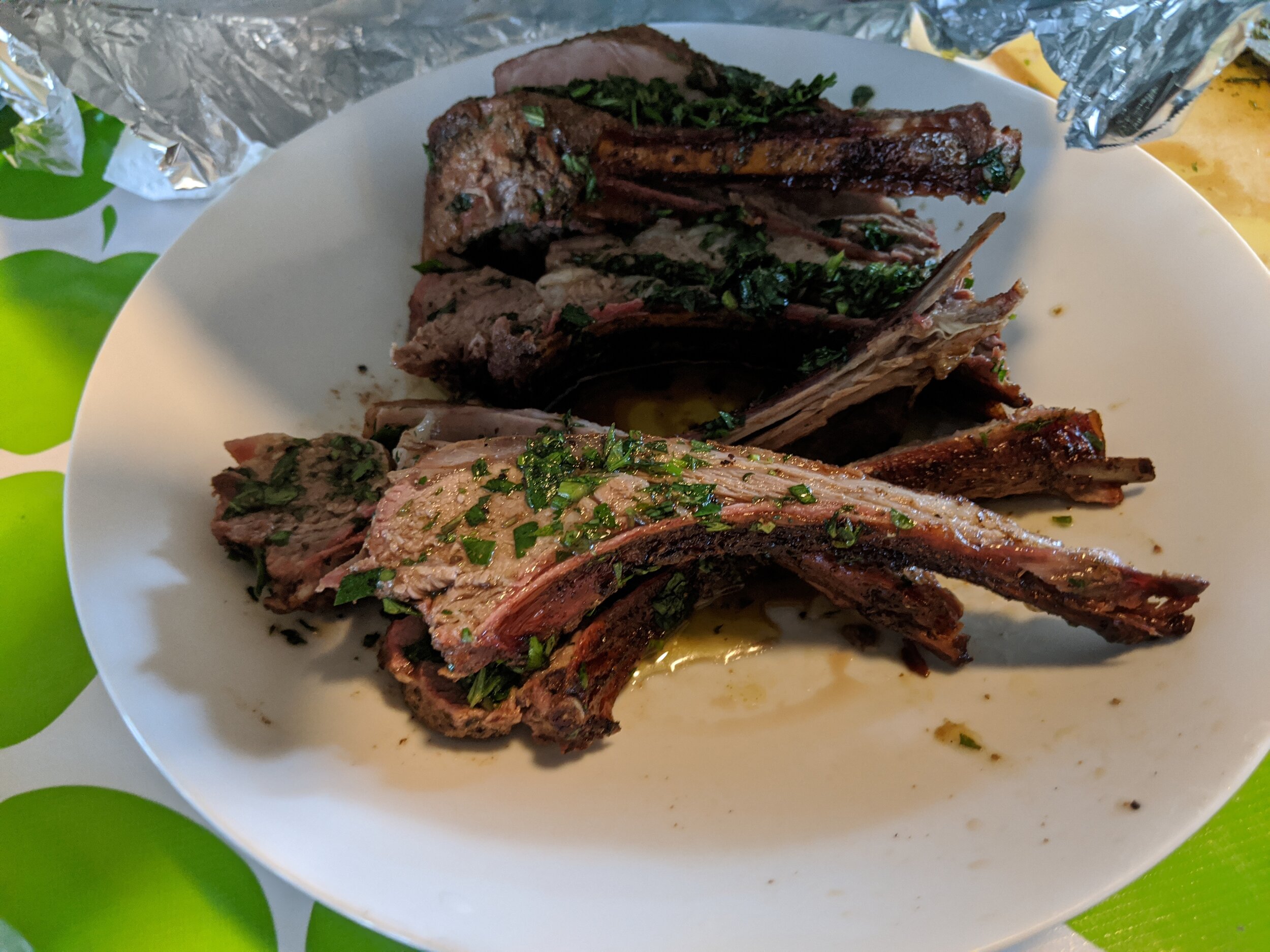Slow cooking meat outdoors (barbecue/smoking without a smoker)
/Cooking with Convection
We use a Pit Barrel Cooker. We don’t know them or have any kind of business relationship with them, it just works really well. Of course, if you have the time and materials, you could make a barrel cooker yourself.
Alternatively, you can set up a charcoal grill for indirect heat. The kettle-style grills are best for this,
but you can do it with pretty much any style of charcoal grill. That’s the way we did it for years. It takes a little more work and isn’t as easy and fool proof, but you can do it!
You’re going to want to use charcoal briquettes. It’s going to be very difficult (impossible) to set up a regular grill for barbecue/smoking while using lump charcoal.
The Snake/Ouroboros. Around the inside perimeter of the grill make a line of briquettes just touching each other. This is why you have to use briquettes, so they are uniform size. You’re going to light these in one spot and then let the flame slowly travel around the circle. With only a few coals lit at a time, you’ll get an approximation of constant, low heat.
Put a pan of water in the middle of the “snake”. This will act as a heat sink to further ensure a relatively constant heating temperature.
Put your meat on the cooking grill directly in the middle of your briquette snake. Ideally it won’t also be above your pan of water — the aerosolized drippings hitting the hot metal of your grill help provide flavor — but if you have to, it’s not the end of the world.
Adjust your vents so that the air (and thus smoke) flows across your meat. Remember hot air rises. If you just have a top and bottom vent, close up the top vent and barely prop open one side of the grill. Air will come up through the bottom vent, but the smoke will be unable to go out the top, so the smoke will surround your piece of meat until it finally leaks out the side of the grill. Keep in mind that air => fire so if your coals are burning too hot, close your intake vent (on the bottom) a bit more! (If your grill doesn’t have adjustable air vents you should throw it out.)
You can add flavor with wood chips. Soak chips of some suitable wood. such as a fruit wood, in water, then make a little foil boat and send your wood chips to Valhalla in the fiery blaze. This prevents them from burning up right away, so you get the benefit of the wood smoke longer. You’ll want to do this at the beginning of the cook, as that’s when the most smoke flavor will penetrate the meat. You can also smoke with flavors besides wood, such as tea or dried herbs.
Get a probe thermometer. For pulled pork you want to slowly bring the internal temperature of the roast to around 195 to 205 degrees F. Other kinds of meat require a different temperature.
“Barbecue” is slow cooking until the meat is pull-apart-tender. “Grilling” is for small pieces of meat on skewers, or fish, or vegetables. Grilling large cuts of meat just dries them out. Steakhouses never grill their meat. You should stop too.
Finishing in the oven is okay
Slow-barbecue-smoking a large piece of meat on a charcoal grill can pose a lot of problems, but as long as you keep the heat low and adjust the ventilation properly, none of these problems really matter. Do not let perfect become the enemy of the good. It’s possible that your coals will go out before the meat is done. Another frequent problem is “stall”: after a few hours the meat gets to within 20 or 30 degrees of being fall-apart-tender done, and then the temperature increase stalls (because thermodynamics). If you encounter these or any other problems, just remove the meat from the grill, wrap it in foil, and finish it in the oven. The first few hours are the most important, because that’s when most of your smoky barbecue flavor is able to penetrate the meat. Finishing it in the oven after a few hours smoking on the grill will be almost as good as keeping it in the smoker the whole time. The key is to not rush. Keep the heat low, in the range of 225F or so.


